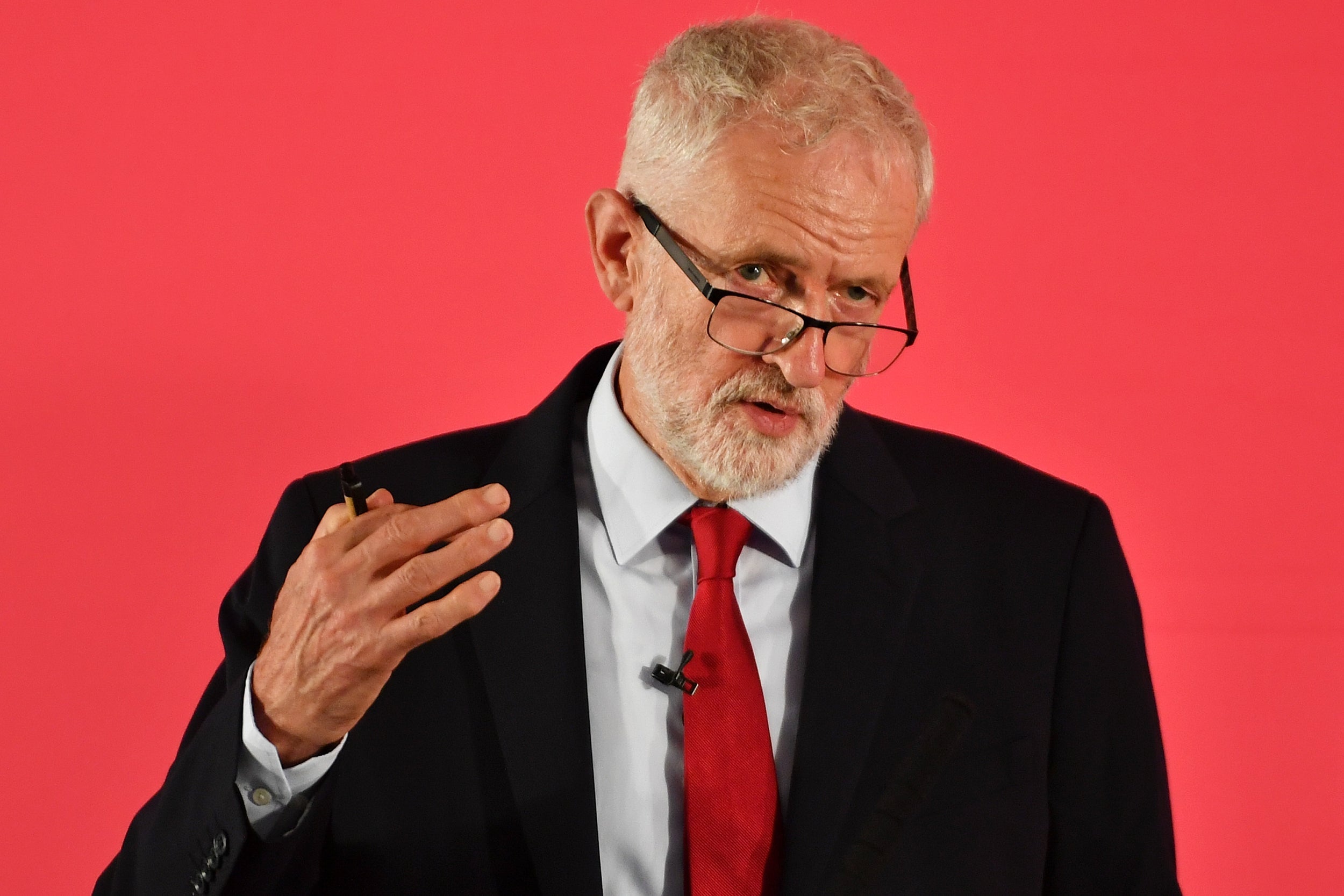Why is Jeremy Corbyn thinking of voting against an early election?
The Labour Party has been calling for another election ever since the last one, but now that the prime minister is offering one it seems to be shying away, John Rentoul writes


Of course, we are the opposition party, we want a general election,” Jeremy Corbyn said on Monday. He confirmed that Labour would back an early election under any circumstances if Boris Johnson were to call one.
Within hours, the sounds of gears being thrown into reverse could be heard in Westminster. Keir Starmer, the shadow Brexit secretary, a lawyer who understands small print, realised there was a danger of the Labour Party walking into a trap designed by the prime minister.
Then after Tuesday night’s vote, when Johnson indicated he would call for an early election, Corbyn told him: “Get the bill through first in order to take no-deal off the table.”
The Labour leader knows that a vote of parliament for an early election under the Fixed-term Parliaments Act leaves the date of the election under the control of the prime minister.
If the Commons votes for Hilary Benn’s bill to block a no-deal Brexit on Wednesday night, Johnson is set to ask MPs to vote for an early election immediately afterwards. He will say that he intends to hold the election on 15 October, but the Act merely requires MPs to vote, by a two-thirds majority, for a motion saying: “That there shall be an early parliamentary general election.”
If they vote for it, it is then up to the prime minister to advise the Queen on the date of the election. It would be extraordinary for Johnson to go back on his word in parliament, but there would be nothing to stop him naming a different date. He could, for example, ask Her Majesty to issue a proclamation for an election on 7 November.
That would mean there would be no parliament sitting on Brexit day, 31 October, which would mean that the UK would leave the EU without a deal by automatic operation of EU law.
So Labour MPs have been lobbying their leader to refuse to support the prime minister’s motion for an early election, and different Labour spokespeople have been saying different things about the party’s position.
Two Labour MPs, Phil Wilson and Peter Kyle, have written for The Independent explaining why they are opposed to an early election: they say that Brexit must be decided first.
But I understand that Corbyn’s close advisers argued that Labour cannot afford to be seen as shying away from an election. They said that most voters would not understand arguments about dates and procedure.
Tony Blair did not help Corbyn with his speech on Monday, in which he said Labour should avoid the “elephant trap” of voting for an early election. He gave two reasons: one was the danger of the election date being set after 31 October; the other was that Labour would lose, making a no-deal Brexit more likely.
If the shadow cabinet did urge Labour MPs to vote against an early election on Wednesday night, Johnson would not have a two-thirds majority. He may then try to pass an act amending the Fixed-term Parliaments Act, setting the 15 October date in law, which would need a simple majority to pass.
If Labour MPs still refuse to vote for it, they will be accused of being afraid of losing, because there would certainly be time to stop a no-deal Brexit after the election – if Corbyn won it. And the government might even win the vote with the help of the Scottish National Party, which thinks it can win back a lot of the seats it lost two years ago.
Much more high politics ahead.
Join our commenting forum
Join thought-provoking conversations, follow other Independent readers and see their replies
Comments
Bookmark popover
Removed from bookmarks